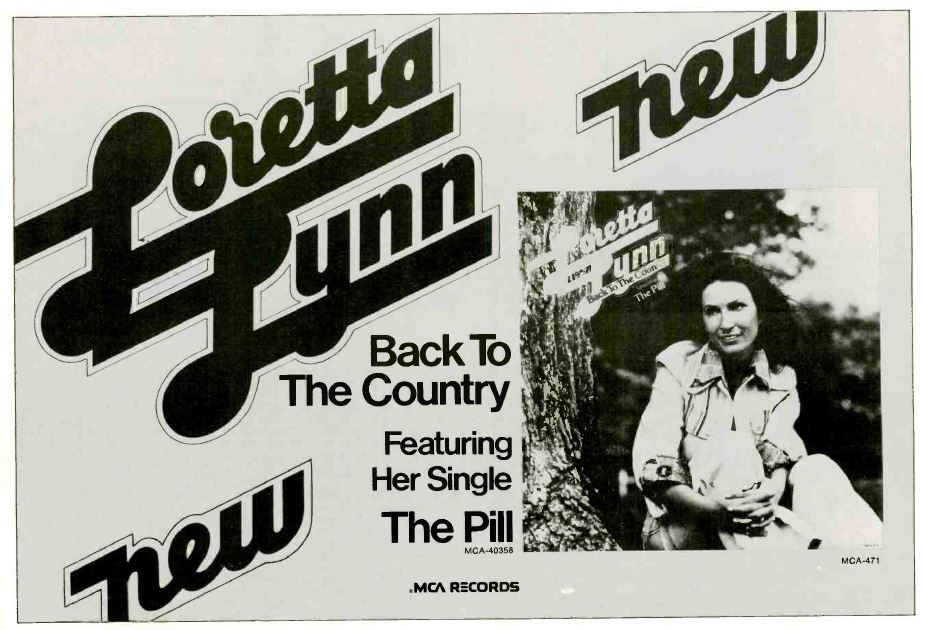The mundane incendiary

There’s been plenty of good writing about Loretta out there, but I especially liked this from Natalie Weiner:
“Well here’s the story of my life, listen and I’ll tell it twice,” wrote a 27-year-old Loretta Lynn in one of her earliest compositions, “The Story of My Life.” How the young singer, at that point still working barrooms in rural Washington logging towns, could foretell that her story would become one of the best-known in popular music history is hard to know. What is clear from that 1959 chronicle, though, is that her story’s prevailing themes were already obvious: she described Kentucky as a “paradise,” and motherhood with a raw quip: “Got kids of four, and I’m tellin’ you I don’t want no more.”
When we try to define what country music is, what could possibly tie together a genre with such wide aesthetic variance and complex history, those two occasionally contradictory arcs—nostalgia for some mythic, bygone rural idyll paired with unapologetic candor and sharp observation—more or less sum it up. When we’re looking at Loretta, we are indeed looking at country, and that should have been obvious to everyone from just about the moment she got to Nashville and immediately befriended Patsy Cline.
Six-plus decades and 50 albums later, Lynn is gone, having died at 90 on Tuesday at her ranch in Hurricane Mills, Tennessee. With her goes a singular, irreplaceable cornerstone of country music history that every artist and, especially, every woman artist has built upon as they seek to channel that same pair of inspirations. There was no big picture angle or mission to Lynn’s work besides telling her story over and over and over again with the kind of honesty and wit that made it feel not just fresh but revolutionary, every single time.
Or as she put it, “I’m not a legend, I’m just a woman.” For those that would laud Lynn as a trailblazer, she was. But her inventiveness was in bringing the kind of plainspoken women’s wisdom that had long flourished on country and folk music’s margins to the big stage; she wasn’t the first, but she was original in her verve and confidence—and had one of the most powerful voices in country music history, ensuring that she was both heard and remembered. Simply by singing her truth, Lynn completely remade the genre in her own image.
In addition, Carl Wilson is good as always on Lynn’s complex relationship with feminism.


